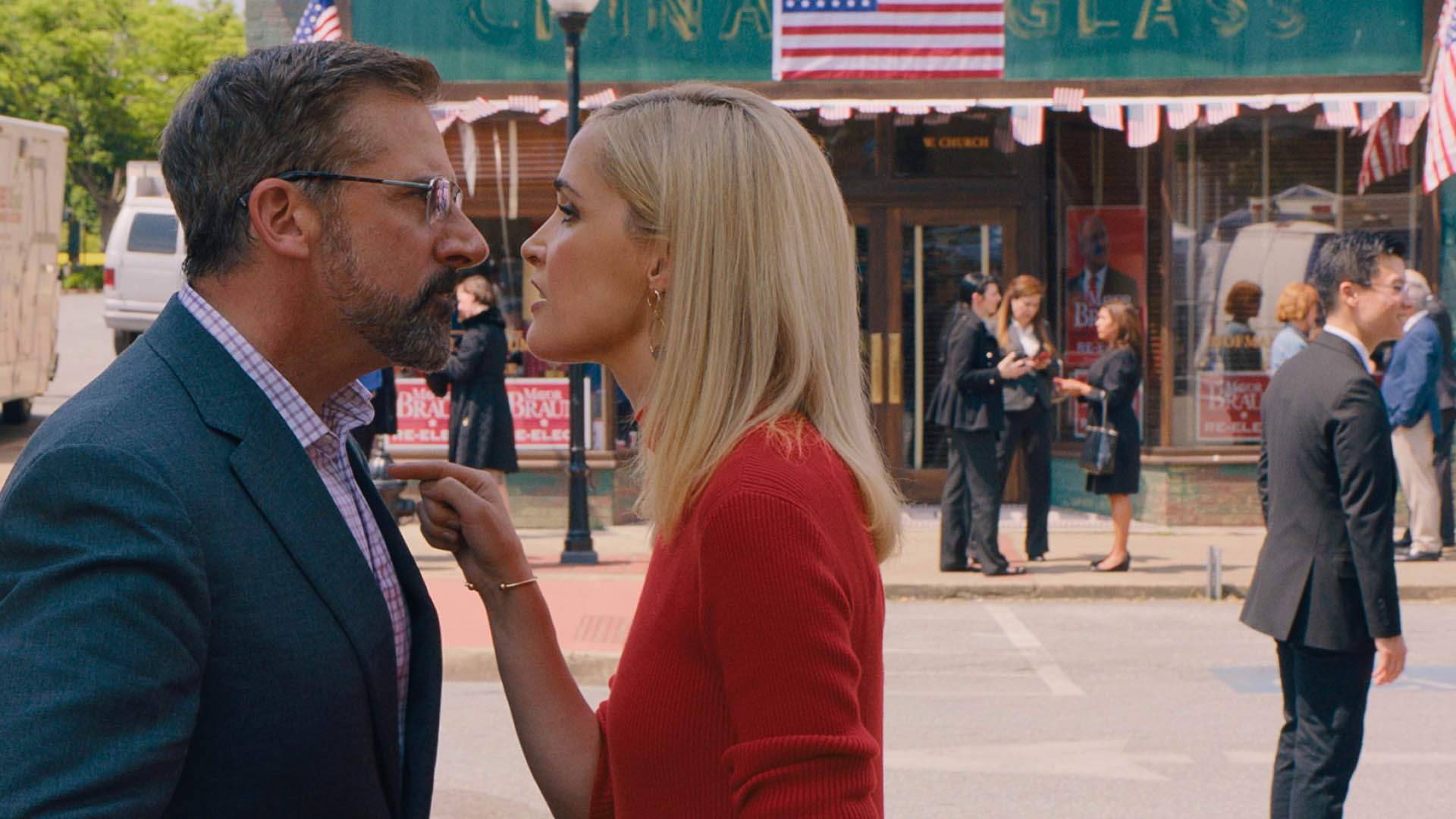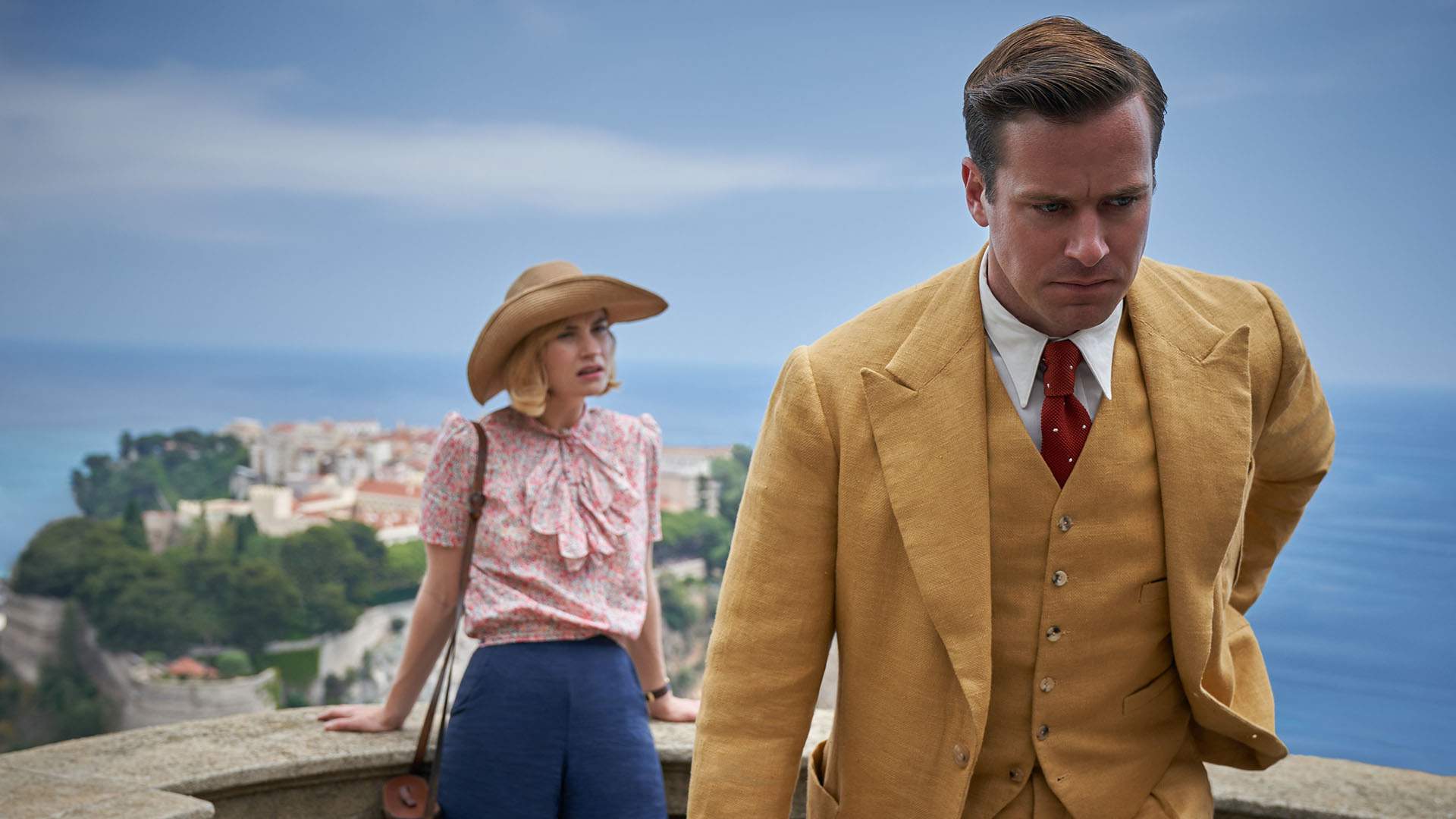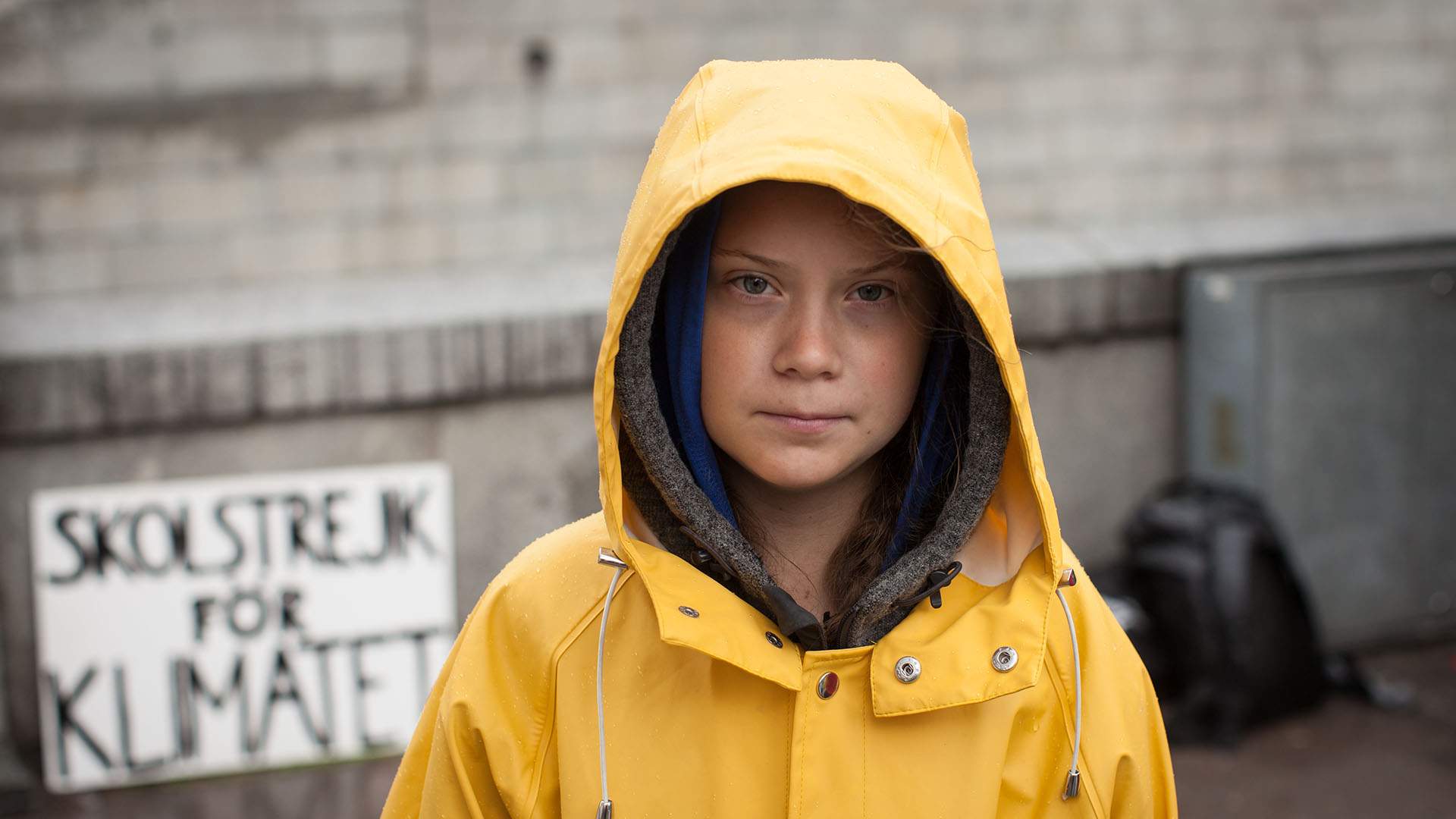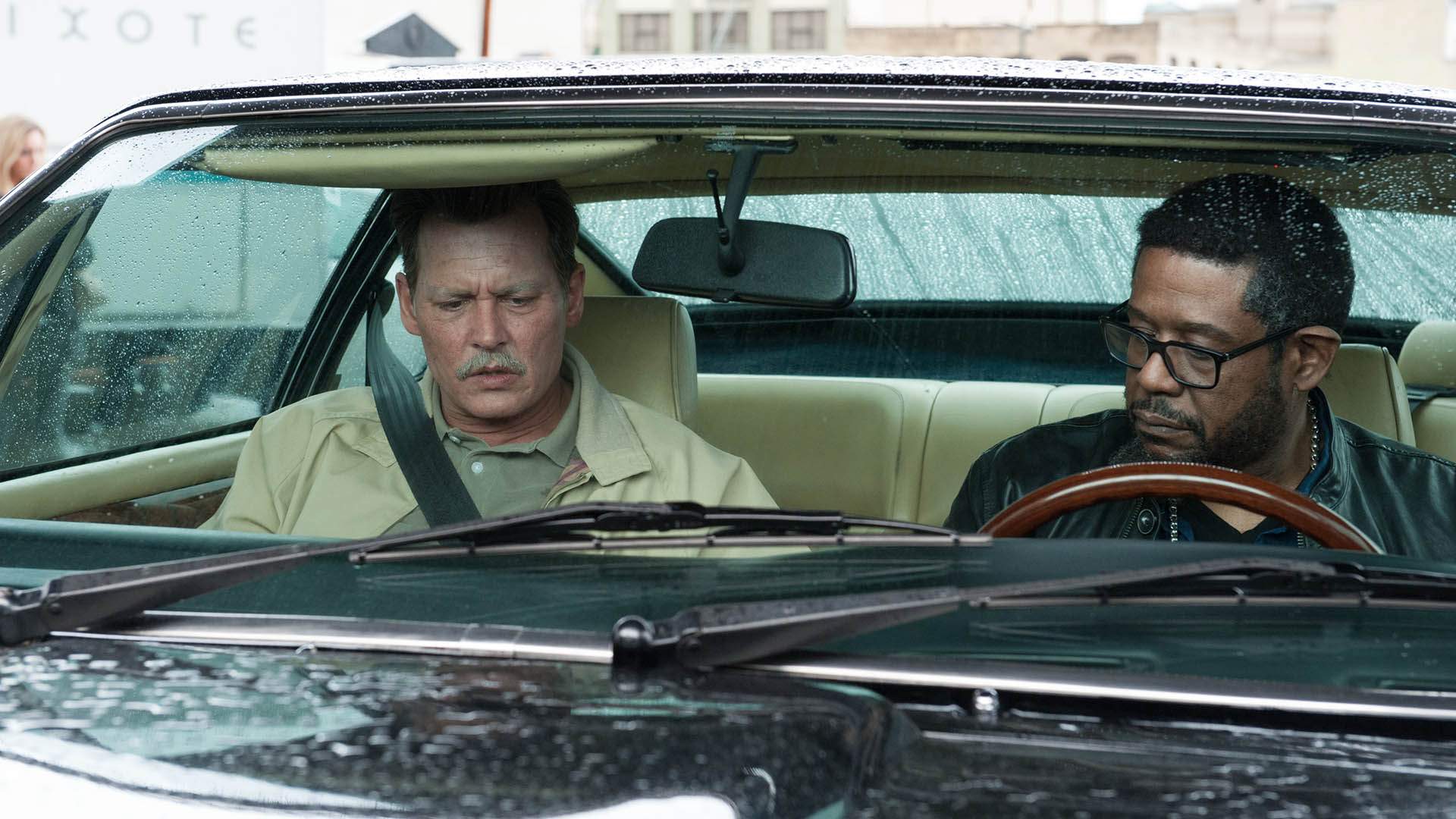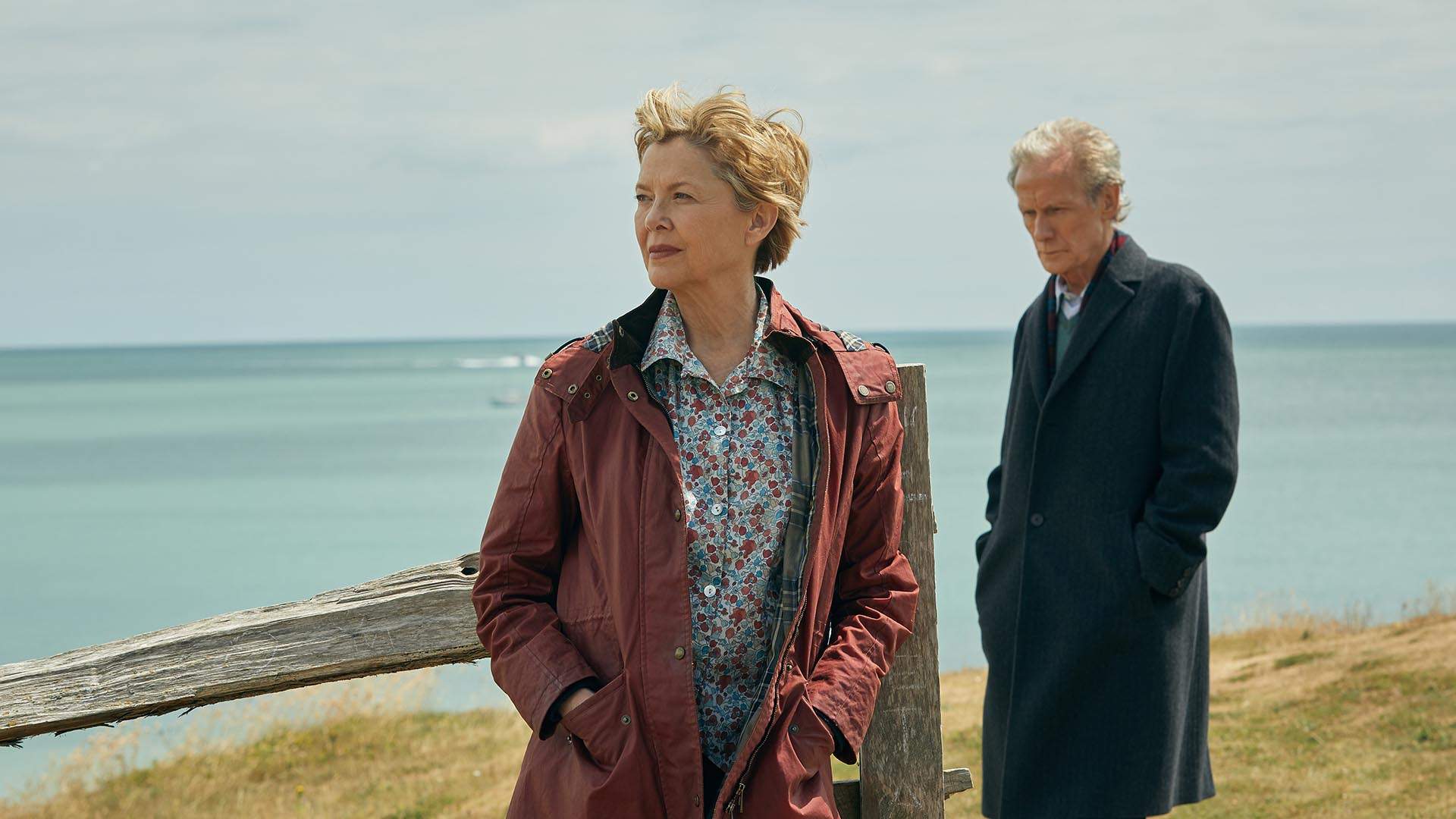The New Movies You Can Watch at Australian Cinemas From October 15
Head to the flicks to see Steve Carell and Rose Byrne's new political comedy, a documentary about Greta Thunberg and a looking gothic thriller.
Something delightful is happening in cinemas across the country. After months spent empty, with projectors silent, theatres bare and the smell of popcorn fading, Australian picture palaces are starting to reopen — spanning both big chains and smaller independent sites in Sydney and Brisbane (and, until the newly reinstated stay-at-home orders, Melbourne as well).
During COVID-19 lockdowns, no one was short on things to watch, of course. In fact, you probably feel like you've streamed every movie ever made over the past three months, including new releases, comedies, music documentaries, Studio Ghibli's animated fare and Nicolas Cage-starring flicks. But, even if you've spent all your time of late glued to your small screen, we're betting you just can't wait to sit in a darkened room and soak up the splendour of the bigger version. Thankfully, plenty of new films are hitting cinemas so that you can do just that — and we've rounded up, watched and reviewed everything on offer this week.
IRRESISTIBLE
Late in Irresistible, a penny drops — figuratively, of course. Much that has seemed overtly clumsy and broad prior to this moment is given some bite and sting thanks to a crucial plot development, and the political comedy finally seems like something that its writer/director Jon Stewart would conjure up. It's a great moment, but it's sadly also a case of too little, too late. Equally skewering and unpacking the polarised state of America today, especially where politics, elections, campaign finance and escalating culture wars are concerned, Irresistible is far too happy to coast on stereotypes of supposed Democratic and Republican party supporter traits, and for far too long. As he did for on The Daily Show, Stewart has set himself the important task of pointing out just how broken US politics is at present (or, realistically, just how broken it continues to be), but this is one of the great comedian and commentator's lesser efforts. It's also inescapably, unshakeably obvious, even as a moral comedy that endeavours to pair its laughs and observations with a few lessons.
After being humiliated by Hillary Clinton's defeat in the 2016 election, Democratic strategist Gary Zimmer (Steve Carell) is re-energised about his job when he's shown a YouTube video from the small town of Deerlaken, Wisconsin. In it, Marine Colonel Jack Hastings (Chris Cooper) makes an impassioned speech supporting undocumented immigrants, and Gary instantly sees a potential Democratic mayoral candidate who'll actually appeal to voters in the Republican heartland. On the ground, little goes smoothly. When Gary's long-time rival, his Republican counterpart Faith Brewster (Rose Byrne), arrives to support the incumbent mayor, Deerlaken suddenly becomes the centre of national attention — and a drawcard for hefty political donations. While Byrne is a fantastic comedic actress in general, it's telling that her presence, expressions and line readings ensure that she steals absolutely every scene she's in, including opposite Carell. Everyone from Russian Doll's Natasha Lyonne to That '70s Show's Topher Grace also pops up, but Irresistible's other standout performance comes from an underused Mackenzie Davis (Terminator: Dark Fate) as the Colonel's resourceful daughter.

I AM GRETA
If a single image can sum up the current crucial battle against climate change, it's a picture — any picture — of Greta Thunberg. Since deciding to skip school to protest outside Sweden's parliament back in August 2018, the braid-wearing teen has become the face of a movement. She isn't the first person to sound an alarm about the dire state of the planet, to vehemently speak truth to power or to gain widespread attention, but her determined, no-nonsense approach really isn't easily forgotten. Sometimes, it's directed at ordinary Stockholm residents going about their days while she strikes. As she has garnered increasing attention, Thunberg has trained her stare on crowded United Nations' conferences, too, and at attendees with the power but not necessarily the inclination to make a difference. She has also met face to face with world leaders, but she knows that politicians usually only share her gaze for a photo opportunity.
Demonstrating patiently, speaking passionately, shaking hands for the cameras: all of these moments are captured by documentary I Am Greta, which surveys Thunberg's ascension from everyday Swedish 15-year-old to one of the best-known figures fighting to save the earth. The film acts as a chronicle, starting with her activism on her home soil, following her efforts as she's thrust to fame, and culminating in her trip across the Atlantic Ocean via yacht to present at 2019's UN Climate Action Summit, where she gave her iconic "how dare you" speech. But as the title indicates, this doco is just as concerned with Thunberg's home life as her public impact. Accordingly, while filmmaker Nathan Grossman has an array of recognisable footage at his disposal in this slickly packaged affair, he interweaves it with quieter, intimate and unguarded moments. These snippets help paint a picture of the teenager behind the activism, and much of it is highly relatable. Also cutting through astutely is Thunberg's continued recognition of how, as her fame increases, the global response by naysayers encapsulates so much about the status quo and the lack of government action. And, similarly leaving a mark is the documentary's dedication to show Thunberg's work to effect change in action, and to let that speak volumes. Indeed, what echoes here is that simply doing the right thing is essential regardless of any obstacles and opposition, whether urged by Al Gore, David Attenborough, Aussie doco 2040, your best mate, your neighbour, a stranger or Thunberg.
Read our full review.

REBECCA
In the pages of Daphne du Maurier's 1938 novel, and on the big and small screens several times since, Rebecca tells the tale of a young woman caught in the shadow of her wealthy new husband's late previous wife. So it's noticeable and perhaps fitting that the new 2020 movie adaptation mimics that sensation, with Ben Wheatley's film forever destined to be compared to Alfred Hitchcock's Oscar Best Picture-winning 1940 adaptation of the beloved book. Wheatley is a stellar filmmaker, and has a resume filled with everything from Down Terrace, Kill List and Sightseers to High-Rise, Free Fire and Happy New Year, Colin Burstead to prove it. Here, in his most mainstream, least boundary-pushing effort to date — and his most visually lavish, too — he has crafted a moody and brooding, elegant and often overtly gorgeous film that doesn't do its source material or the gothic genre a disservice. But it still always feels as if it is following in Hitch's footsteps, even when it deviates from that version's famed changes under Hollywood's strict production code at the time.
As the book does, this iteration of Rebecca starts an evocative line: "last night I dreamt I went to Manderley again". It's uttered in voiceover by a young woman who is never known as anything but Mrs de Winter (Lily James), and who viewers first meet as a paid companion to an acid-tongued socialite (The Handmaids' Tale's Ann Dowd) during a trip to the French Riviera. During the picturesque getaway, the unnamed heroine crosses paths with widower Maxim de Winter (Armie Hammer). Romance quickly blooms, setting them en route to his sprawling family estate. Back at Manderley, however, the new bride can't escape the lingering presence of the movie's titular figure, the menace directed her way by housekeeper Mrs Danvers (Kristin Scott Thomas) and the sensation that much is awry about her current situation. Those unacquainted with Rebecca's twists should keep it that way going in, with Wheatley patiently teasing out its ample psychological thrills. Still, as luxe as it looks, as capably as it handles the iconic narrative and as memorable as Scott Thomas is — with James and Hammer always hitting their marks, but doing little more — this is a movie that exists, engages enough, but rarely has a strong lasting impact.
Read our full review.

CITY OF LIES
It has been almost a quarter-century since Tupac Shakur and Christopher Wallace (aka the Notorious BIG/Biggie Smalls) were gunned down in separate incidents within six months of each other — and, over that time, fewer films about either or both have reached screens than one might expect. Known not only for their music but for being the focal points of the supposed East Coast-West Coast hip hop feud, the pair's plights have inspired exactly zero worthwhile movies, though, and that includes the long-delayed City of Lies. Based on the non-fiction book LAbyrinth by Randall Sullivan, this conspiracy thriller views the deaths of two of the 90s' biggest stars through the efforts of LAPD detective Russell Poole. There is real-life grounds for that angle, and the on-screen Poole (Johnny Depp) is constantly noting and fighting against the racial prejudice that existed in the Los Angeles police department at a time just after the Rodney King assault, trial and riots, as well as the OJ Simpson case. But there's no escaping the fact that the film approaches some of the most momentous events in rap history through a white cop.
In 1997, Poole is assigned to another shooting — of a black officer by a white officer — just days after Notorious BIG's death. Soon, however, his investigation of the former leads him to the latter, and to the conclusion that the LA police were involved in killing Biggie, all as his superiors demand he ignore the evidence. Decades later, long after he has resigned from being a cop, a journalist (Forest Whitaker) wanders into Poole's apartment for a 20-year piece on the rapper's murder — and the writer might've been accused of dredging up the past if Poole's walls weren't covered in case details and materials. Where director Brad Furman turned legal thriller The Lincoln Lawyer into a slick and entertaining affair, almost everything about City of Lies is misjudged, and it drags on rather than drawing viewers into its theories or even the cases it covers. Depp plays crusading but hard done by with little discernible effort, and the decision to film the movie's 90s scenes with the same type of hues and lighting usually reserved for 70s-set features smacks of the same. And while Whitaker is the best thing about City of Lies, his determined performance isn't enough to salvage the film.

HOPE GAP
If you're going to watch a couple navigate the waning days of their decades-long marriage, and watch as their adult son tries to cope with the fallout, too, then you might as well be directing your eyeballs at Annette Bening, Bill Nighy, and God's Own Country and The Crown star Josh O'Connor. They play Grace, Edward and Jamie, respectively, with their family rocked by the revelation that mild-mannered, history-obsessed teacher Edward is leaving after 29 years because he's fallen in love with another woman. Usually the shining light and driving force in their modest house in a seaside town, Grace doesn't take the news well. Jamie, who lives in the city and doesn't generally come home as often as anyone would like, swiftly becomes his mother's main source of a support and a go-between with his father. As written and directed by second-time filmmaker William Nicholson (1997 feature Firelight) based on his 1999 play The Retreat from Moscow, little in Hope Gap's narrative offers surprises — especially if you've seen other movies about marital breakdowns, such as 2019's far meatier Marriage Story — but the British drama benefits considerably from its central trio of talent and their performances.
While the plot plays out as anticipated, one aspect of Hope Gap does veer from the expected formula — and that'd be O'Connor. That he's an exceptional actor isn't new news, but he's firmly the heart of this wordy drama about the yearning and breaking hearts of his character's parents. He's also the most soulful part of the film; however, that isn't a criticism of Bening and Nighy. In spiky but still vulnerable mode, Bening may struggle with an unconvincing English accent, but she cuts to the core of Grace's bravado and pain. Nighy plays his part in a far softer, gentler, more nervous register, and helps make it plain just how Grace and Edward's marriage has gotten to this fracturing point. In a handsomely shot movie that intertwines picturesque glimpses of the coast with tense domestic scenes — and uses poetry verses to help convey emotion as well — they all demand the viewers' attention. But without the especially tender and thoughtful O'Connor, Hope Gap would've felt like just another average portrait of a longstanding relationship imploding, even with Bening and Nigh's impressive work.
If you're wondering what else is currently screening in cinemas — or has been lately — check out our rundown of new films released in Australia on July 2, July 9, July 16, July 23 and July 30; August 6, August 13, August 20 and August 27; September 3, September 10, September 17 and September 24; and October 1 and October 8.
You can also read our full reviews of a heap of recent movies, such as The Personal History of David Copperfield, Waves, The King of Staten Island, Babyteeth, Deerskin, Peninsula, Tenet, Les Misérables, The New Mutants, Bill & Ted Face the Music, The Translators, An American Pickle. The High Note, On the Rocks, The Trial of the Chicago 7, Antebellum, Miss Juneteenth and Savage.

Top image: Rebecca, Kerry Brown / Netflix.
